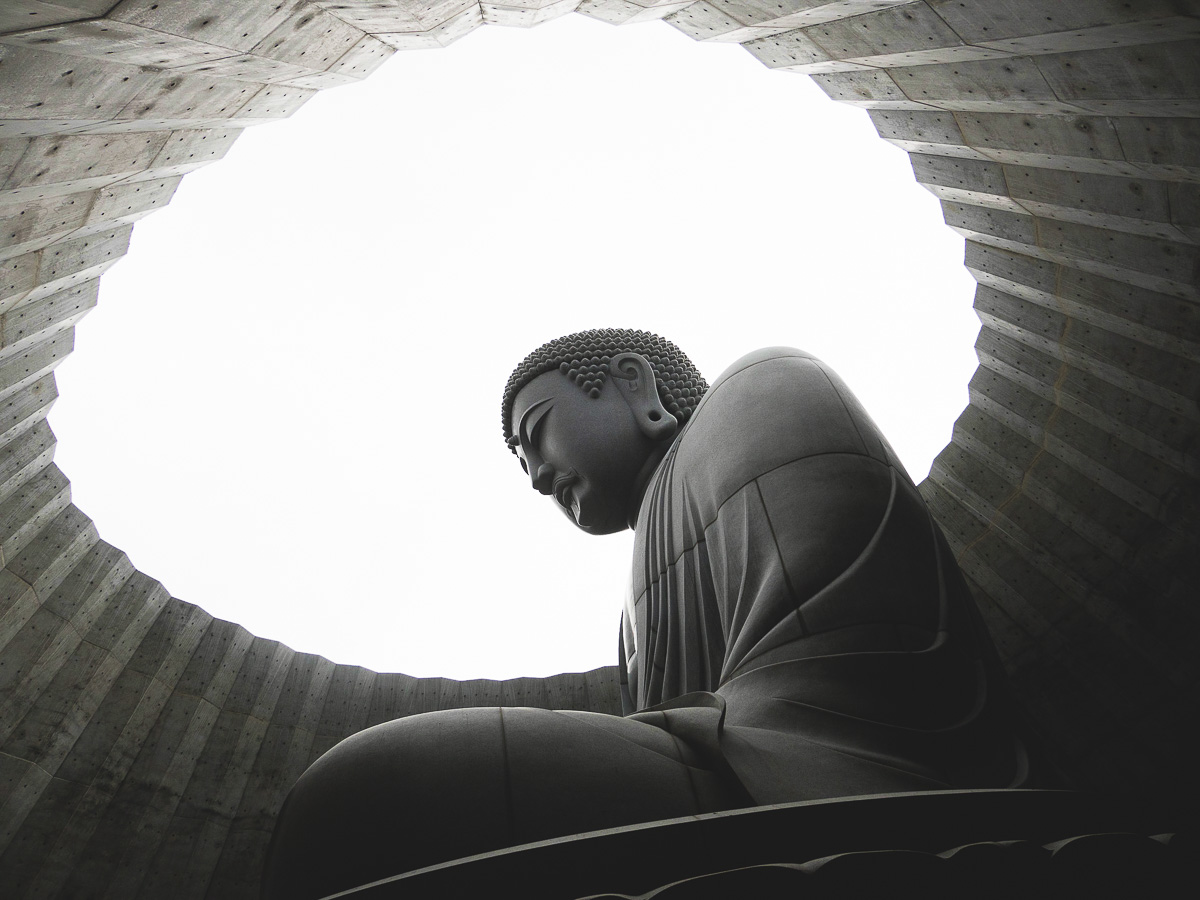Japan is a polarising country, the kind of place you love or hate, or actually love and hate at the same time. At the image of the yin and yang, the opposites of the land of the rising sun rather complement each other than confront, a place where concepts western culture would consider as conflicting can actually cohabit in harmony.
How stupid was I, though, to think that travelling in Japan would be a relaxing experience. After almost four months of adventures in the Himalayas, the tightly organized Japan sounded appealing… but it was without taking into account that the summer is one of the busiest season.

We immediately find ourselves confronted with reality. Our usual opportunist way of travelling, mainly consisting of day to day decisions, needs to be adjusted. We will now have to book rooms days in advance, even if that means sacrificing the extra time we could have spent in places we’d have loved. Which brings on the table another problem: be sure to arrive at the hostels on the specified day, an easy task around the big towns but becoming more tricky as we approach the countryside.
Swallowed by the modern Japanese way of life, riding train after train, bus after bus, we develop a travel frenzy, consume destination after destination in an attempt to see the most of it. But Japan has too much to offer and even if we stay here for a bit less than two months, we’ll never be able to see all we intend to. It is time to stop this madness and slow down.

As the pace becomes more bearable, we can finally take the time to observe and immerse into the culture. Japan is clearly the country of the opposites. Home of the biggest urban area in the world, Tokyo, it is also a land of lush forests and large wilderness areas; despite all its technological advance and extravaganza, ages-old traditions are still very much alive with numerous festivals, temples and shrines; and although being the place where Zen Buddhism grew and refined, the level of stress of the Japanese office workers reaches summits.

It is not a surprise then to find some of the most beautiful shrines, surrounded by centuries-old forests, in the middle of a big city or by a busy train station. However, more than just cultural monuments, these sacred complexes are lively places where locals and Japanese tourists come for prayer and contemplation, often rhyming with overcrowding, ruining the experience for the selfish-tourist-photographer-avid-of-solitude that I am. As Japanese Buddhist monk and poet Urabe Kenkō mentioned already about seven centuries ago: “Shintō temples, Buddhist temples: how charming it is to visit them when there is no one! What a superior charm it is to do it at nightfall.”[1]

I’ll follow the monk’s advice and discover a whole different face of Japan, one few people actually experience as the sanctuaries are usually deserted at 5 o’clock sharp. Gone is the stress, forgotten the worries. Alone in forests inhabited by bears, foxes and magical spirits, the intertwined roots of moss-covered trees and eroded statues of Buddhist gods and Shintō kamis come alive as darkness falls. A mix of fear and wonder rises in me. I’ve finally found the magic I was looking for on this island.

Despite the amount of stress endured in this trip, there was always this little something that saved our day. When it was not a relaxing onsen, some delicious food, or the good vibes of a forest or a lake, this something was always related to the Japanese themselves. Because if there is a “must-do” in Japan, it has to be spending time with locals. Their sense of respect and kindness have no equal. I cannot count how many times the grumpy French that I am felt gross compared to even the rudest of Japanese, and even if their manners can sometimes feel a little excessive, you quickly get used to them and as quickly will you miss them when you leave.

To make it short, Japan is not a trip like others, it’s a whole experience. Maybe you’ll love it, maybe you’ll hate it… or both. But it will definitely not leave you indifferent.
- approximately adapted by myself from a French translation. Would you know the actual English translation, I’d be happy to update it. ↩



